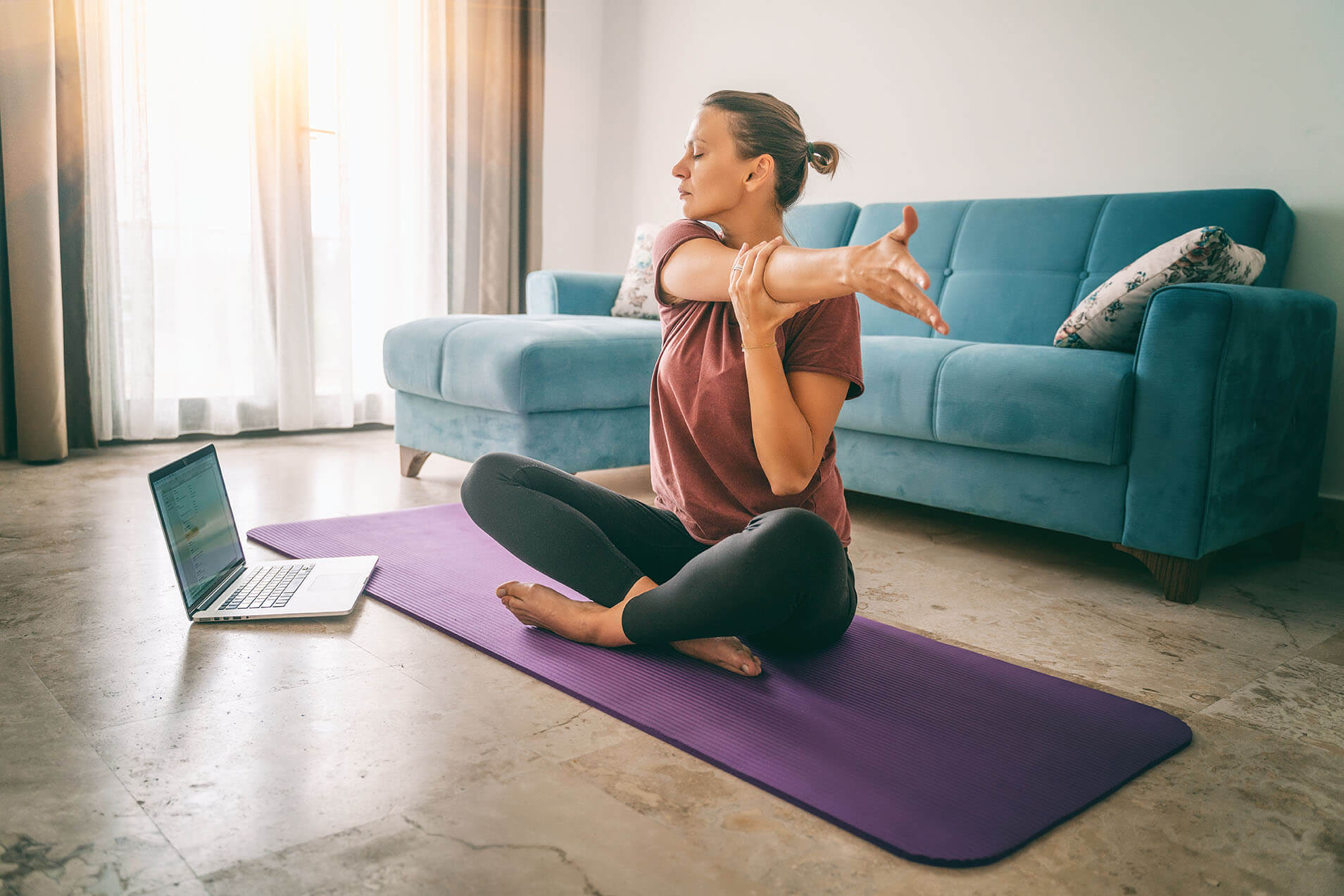
After gaining a new lease on life thanks to a newfound sobriety, individuals heading in recovery look forward to setting new goals, getting fit and healthy and living a life of gratitude.
However, the anxiety that often accompanies early recovery is not always anticipated.
Anxiety and stress can quickly hinder a person’s recovery journey if not taken seriously. In fact, unmanaged stress is a leading cause of relapse. So, as you embrace your new life in recovery, be proactive in acknowledging your feelings of stress and anxiety as they come up.
So, how can you manage anxiety better?
Start with the basics.
What is anxiety?
Before learning how to cope with anxiety, it’s important to understand what, exactly, anxiety is.
First of all, stress and anxiety are normal human responses to stimuli. When we feel stressed or afraid, it triggers a biological response called the fight or flight response. The hormones that are secreted, cortisol and adrenaline, trigger the symptoms of anxiety.
This response makes a lot of sense if what you’re reacting to is a wolf or other predator out in the wild. Less so if it’s a phone call. But this response is still extremely common.
In fact, anxiety disorders are quite prevalent in the U.S., with about 40 million people struggling with some type of anxiety. The symptoms of anxiety become a “disorder” when they disrupt your daily life and impair your ability to handle your tasks and responsibilities.
Many people experience intense stress and anxiety symptoms without developing an anxiety disorder. These can include:
- Irrational feelings of worry, fear or dread
- Muscle tension
- Fatigue
- Increased heart rate
- Shallow breathing
- Insomnia
- Loss of appetite
- Sweating
- Irritability
- Headaches
- Gastrointestinal distress
- Trembling
- Withdrawing socially and isolating
Because anxiety symptoms are often associated with relapse, learning how to manage the symptoms is vital to maintain long-term sobriety.
What causes anxiety in recovery?
When you experience anxiety during early recovery, it could be related to post-acute withdrawal syndrome (PAWS). These are a cluster of withdrawal symptoms that persist for weeks, even months, after completing detox and treatment.
Aside from PAWS, anxiety may be a direct response to the challenges everybody faces in the early stages of recovery. Some of the situations that might spark feelings of anxiety include:
- Fear of living in sobriety without the using a substance of choice as a coping tool
- Living in a new setting if residing in sober living housing
- Seeking or starting a new job
- Feelings of loneliness
- Facing financial issues that are often the result of substance use
- Experiencing disrupted sleep patterns
- Making amends and repairing relationships
It is important to know how to reduce stress and anxiety before it gets out of control. However, if the following techniques are not effective in managing your anxiety, it is a good idea to meet with a psychotherapist who can further assist you.
Coping with anxiety in recovery
Since stress and anxiety are a normal human response, they happen to everybody, whether you’re in recovery or not.
Fortunately, there are some tried and true coping strategies you can use to manage feelings of stress and anxiety. These have a proven calming effect on the human body which can improve with practice.
Here a few coping mechanisms you can try to help you better manage anxiety:
- Mindfulness: This is the practice of thinking in the present moment and acknowledging the sensations around you at that moment. Mindfulness teaches us to pause, listen to and accept our present emotions.
- Yoga: Yoga involves intentional movements and poses, along with focused breathing. Yoga’s physiological effects help regulate stress hormones.
- Deep Breathing: Practice deep breathing to help reduce Inhale slowly to a count of five, hold the breath for a count of five and exhale completely to a count of five. Repeat this exercise as many times as you need.
- Working Out: Exercise is one of the most effective ways to reduce symptoms of anxiety. Physical activity releases endorphins and produces serotonin and dopamine, all of which can reduce anxiety and improve your
- Grounding: Grounding, also known as earthing, refers to the practice of uniting with the natural elements. This is done by walking barefoot or standing in the sand, on the grass or even in the dirt in order to connect therapeutically with the earth.
Preparing for life in recovery should also include stress management techniques. These actions can help reduce anxiety, reinforce sobriety and thereby protect recovery.
Ashley Addiction Treatment, formerly Father Martin’s Ashley, is a nationally recognized nonprofit leader in integrated, evidence-based treatment for substance use disorders. Our programs are accredited by The Joint Commission, and result in frequent publications of ongoing research into effective treatment methodologies. We offer holistic care that encompasses the mind, body and spirit through inpatient and outpatient treatment, provide drug detox, relapse prevention plans, family wellness programs and a variety of other services tailored to each patient’s unique needs. Our driving principle — “everything for recovery” — reinforces our mission to transform and save lives through the science of medicine, the art of therapy and the compassion of spirituality, and is complemented by our philosophy of healing with respect and dignity. For information about our comprehensive programs, please call 866-313-6307.
